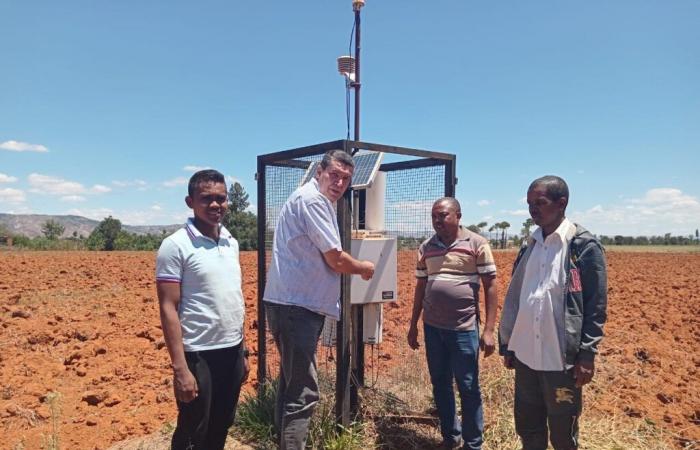Effective Triangular Cooperation: The Example of Madagascar
From November 18 to 23, 2024, an expert mission was carried out in Antananarivo, the capital of Madagascar, as part of this triangular project. The main objective was to assess the impact of land use and climate change on the degradation of water resources, a major issue in the Antananarivo watershed region. This project mobilized the expertise of Morocco, Madagascar and the IAEA, illustrating a model of cooperation that combines the technical and scientific know-how of these different partners to meet environmental challenges.
The mission was led by Mr. Khalid Laraki, an international expert, and focused on the use of advanced nuclear technologies, such as remote sensing and radionuclides, to monitor water quality and better understand the effects of climate change. This technical approach strengthens the ability of local scientists and researchers to analyze environmental data with greater precision and efficiency.
A Positive Balance Sheet for Water Resources Management
The preliminary results of the mission reveal significant potential for improving water resources management in Madagascar, while highlighting the essential needs to achieve this objective. The experts notably identified improvements to be made to the infrastructure of the INSTN (National Institute of Nuclear Sciences and Techniques) laboratory in Madagascar, which plays a crucial role in environmental analyses. Among the recommendations are the upgrading of sample storage equipment and the improvement of IT tools dedicated to data processing, elements considered fundamental to guarantee the quality of future analyses.
Furthermore, the project made it possible to propose solutions to refine the data collection methodology, in particular through the integration of more advanced remote sensing technologies. This will facilitate a more in-depth understanding of the effects of erosion and climate change in the Antananarivo region. These efforts are essential to protect water resources and mitigate environmental impacts in this vulnerable region.
Building Local Capacity: A Priority for the IAEA
One of the main axes of this mission was the strengthening of local capacities. To ensure that the Malagasy teams could manage the project independently, specific training was provided. These included sessions on the use of nuclear technologies and advanced data analysis techniques. The project also plans exchanges with Moroccan researchers to create a network of expertise that will last beyond the mission.
These initiatives are of particular importance in a context where climate change directly affects the availability of water, a crucial issue for local communities. The mission also made it possible to collect data on the ground relating to water quality and soil humidity, essential information for the future management of water resources in Madagascar.
A Cooperation That Makes Sense
This expert mission led by the IAEA as part of triangular cooperation between Madagascar and Morocco perfectly illustrates how countries can collaborate to address global challenges. By facilitating such partnerships, the IAEA contributes not only to the preservation of natural resources in Madagascar, but also to the improvement of local scientific expertise, essential for sustainable resource management.
The results obtained during this mission underline the effectiveness of the triangular approach implemented by the IAEA. By bringing together specific skills from different countries, this initiative promotes the transfer of technologies and know-how, thus creating a virtuous circle that benefits not only the countries concerned, but also the international community. By strengthening local capacities and adopting innovative methods for resource management, the IAEA sets a good example of successful international cooperation.






